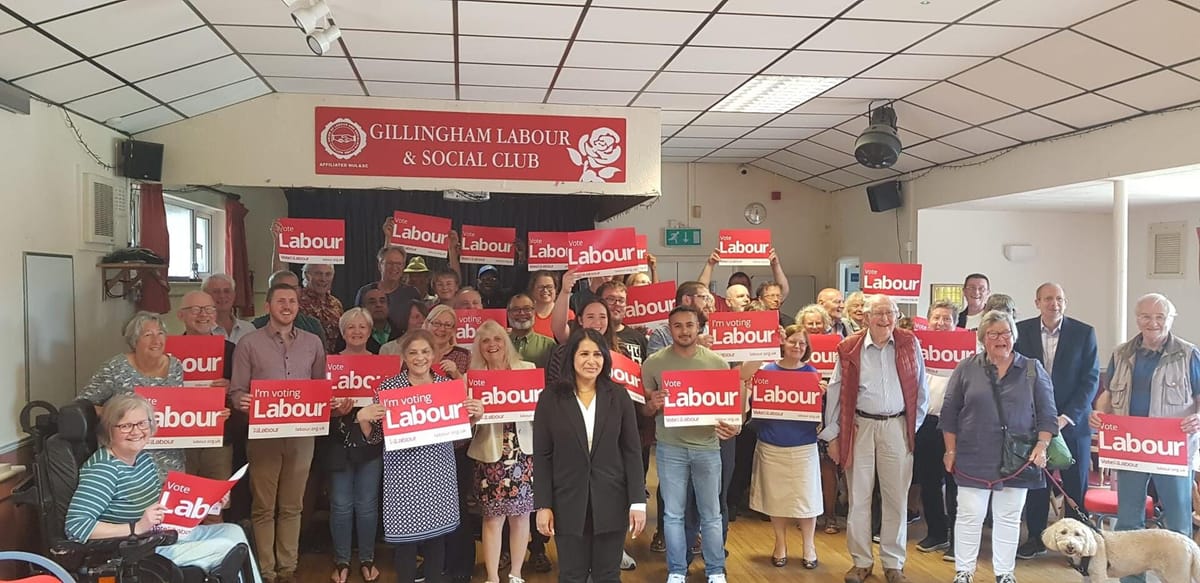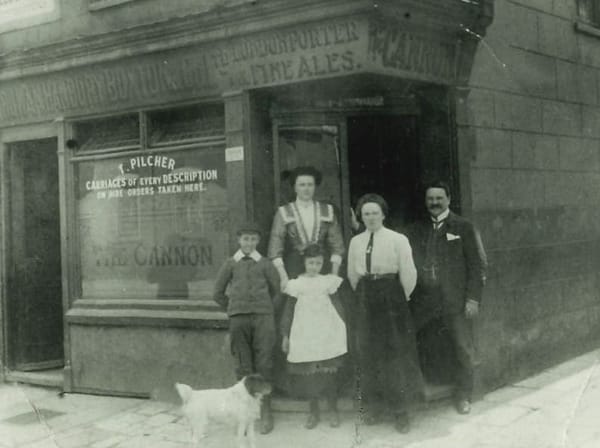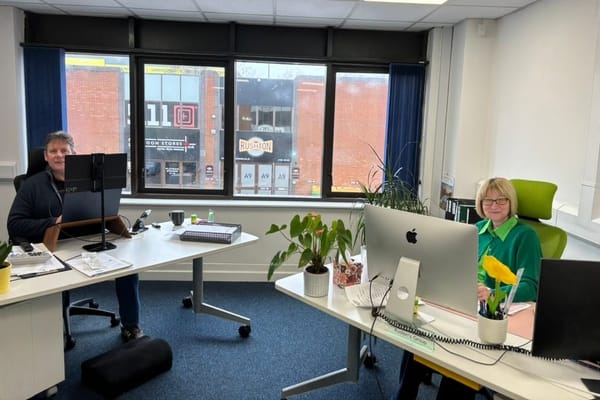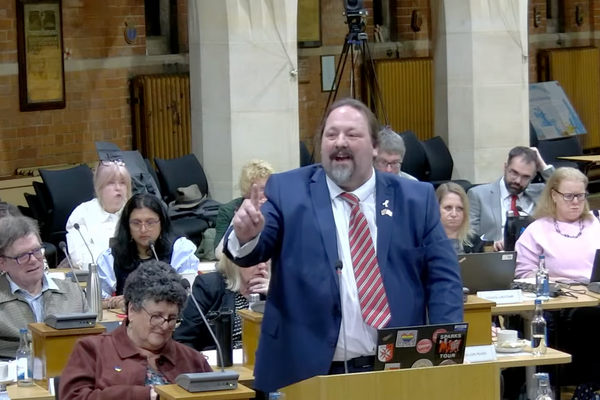“There are huge parts of our society that need to change”.
What Steven asked Cllr Naushabah Khan, Labour's parliamentary candidate for Gillingham and Rainham

Naushabah Khan has been a councillor for Gillingham South since 2015, is currently the Medway Council portfolio holder for Housing. At some point in the next year, she will be standing for parliament in the constituency of Gillingham and Rainham. Steven met her in her office at Gun Wharf to discuss why she joined the Labour Party, why she is a feminist and of course, the Local Plan.

Where were you born?
I was born in Chatham at All Saints Hospital. When I was at school, I literally thought everyone was born there (laughs). It was only as I got older, I realised that no, not everyone was born there. So born in All-Saints, but I have spent my whole life, except for university, in Gillingham.
What jobs did your parents do growing up?
My mum has always been in admin. She used to work for Lloyds Bank, she then moved to work for the MOD, she now is the PA to the Brigadier at the Royal Engineers. My dad was a printer engineer. He basically used to fix printers back in the day.
How did you find school and university?
I was a bit of a geek. I really liked school and I really liked learning. I was always one of those probably annoying kids that was always doing their homework on time and things like that. I went to Fort Pitt for secondary school and the Maths school for sixth form. Never really had a bad school experience. For A-levels I did Maths, History, which I absolutely loved, French, and English literature. I really wanted to study politics because I think I started to realise my interest in politics at school. When I was in primary school about 11 years old, I watched the ‘97 election results come in with my dad. My dad was very much into his politics, but as sometimes happens in sixth forms, they couldn’t get the A-levels timetable to work. I think for me there was a big learning curve. I found school easy for a long time, and there was a big jump to A-levels. I also went from going to an all-girls school to a boy’s school with a handful of girls in the sixth form. There was a huge kind of cultural shift in those years.
When I went to university to read History, because I really enjoyed doing history. Then I converted to law at a later stage, but it was actually with university that I really got involved in politics. I think nowadays quite a few young people while they are at school are quite political. There's a lot of interest in political parties, but when I was there, I didn't know anybody at my age that was in a political party. It was when I went to university that I really started to see student politics around me. I went to the University of Birmingham. That's when I got involved in the Labour Party, because I met like-minded people in the student union and I've always known my politics were Labour, even though I protested against the Iraq war. I think that was just really reaffirmed when I went to university, and I was able to meet a lot more people. That's when I joined the party and that's when I got heavily involved in politics. I still have friends now who I went to university with who are leaders of councils and MPs, so clearly it was a very political university. I was Vice President of housing at university. It seems to be something that's followed me around. That time was fighting for student rights, for better conditions for students in the rental sector. I remember running a campaign to get rid of the rats. When I look back on it, some of the issues I was fighting for then, I am fighting for now.
What was your first full-time job?
When I first left university, I did a sabbatical year. When I was Vice President, that was a sabbatical year after finishing my degree, but you didn't get paid a salary technically. My first full-time job was as an auditor for KPMG. I joined their graduate scheme, and that’s where I started my career and realised very quickly that that’s not what I wanted to do (laughs).
What is your official occupation?
I am the Director of Policy and Comms for a homelessness charity, St. Mungos.
What additional roles, paid or unpaid do you do?
I'm a Cabinet member at Medway Council for Housing and Property, which is a part-time role, and I am a councillor for Gillingham South.
What does the average day entail?
I enjoy exercise, so I try and fit that in, which is becoming increasingly difficult, but I do my best because I think it makes me more motivated and active. My days are pretty busy because I'm managing lots of things and since we won the council, big decisions need to be made. Being part of the Cabinet, a lot of it is taken over with working. A lot of politics, a lot of emails. When looking at things like housing and homelessness, it is important that you don't just sit in an office all the time, that you actually do go and get out there, see what's happening, speak to people, look at their experiences, and try to understand. I don't think politics works or policy works unless it recognises how things are working on the ground, so I do try and make space to do that.
Why do you think the council has failed to produce a Local Plan for so long?
When I first stood for parliament, the big debate around our Local Plan was the Lodge Hill site. Things have moved on since then, but there have always been challenges in Medway around this. Firstly, national government have not made this easy. They've constantly been changing the numbers and that process is a bit of a clunky one. It doesn't make it simple to get the answers that we want when we're living in an area like Medway, which is pretty urban, areas are very densely populated. I also think, to make a political point, that the previous administration tore themselves up over this. They were clearly politically divided and couldn't come to a consensus on delivering a Local Plan. They got caught up in the detail when they needed to be looking at bigger picture.
The Local Plan sets out the strategic vision for Medway. It sets out where we would like to see not only housing development but opportunities for employment, amenity space, green spaces. It's not the most prescriptive document. There will be further consultation and changes, but it gives you a sense of where development can go. What we do while we don't have an up-to-date Local Plan is put ourselves at risk on sites that people really want to protect. That means our ability to stop development in areas that we don't want it to happen is completely hampered and what we will get is instead of a strategic vision for Medway is piecemeal development. Which isn't necessarily supported by the necessary infrastructure, which is vital to this, and doesn't really always work for residents in Medway.
As the Cabinet member for housing, what can be done about homes that have been left empty for over a year?
That's really important. There's a few things that we need to be doing about housing, and one of them is definitely bringing empty homes back into use. We used to have an officer that was dedicated to this many years ago but that was a role that was removed. I know it's a priority for the housing team, it is a priority for me as well. As part of our bigger approach to housing, good quality housing in Medway, that meets needs. It's something that we're absolutely looking at. It's not always simple, because there will be properties that just we can't find the ownership for. I sometimes see cases of that, but if residents are aware of empty properties, please do flag it with the council, because we are looking into this as much as possible to see what is possible. But that alone is not going to meet Medway’s housing needs.
If there is an empty property, and even the council can’t identify the owner, does it just stay abandoned?
No. There are things that we can do. We can often identify the owner, it is just can we locate the owner. An example is a complex site on Gillingham High Street, which has just that problem. It's been standing empty for a while. It's owned by various people, various companies, and there's a huge process of work that needs to go through the courts to be able to locate the owners and then see what the next steps are. There are legal processes that are available to us, but they're not always simple or cheap.
Are you a feminist?
Yes, I believe that there is a fight for equality that we need to continue and the fact that women are over 50% of the population in the world and yet in so many ways underrepresented, do not have the same access, and are facing challenges because of our sex and our gender is something that cannot be ignored. I've always been a feminist. It's something that drives me. I believe that making sure that we have opportunities for girls and young women, but also taking on some of those challenges that exist like the gender pay gap is really vital. I've seen how this has changed and evolved over the years. I started off as women's officer for my student union and then we were fighting against things like sexual harassment in nightclubs, we were looking at the objectification of women which is something that still happens a great deal. More recently I have been talking to friends of mine who have been on maternity leave and the impact that's had on their careers and what it means for them when they tried to come back into the workplace and how far their career has fallen behind. Some of them have been treated awfully by their employers despite the fact that it is illegal. There are still huge challenges that we've got even in this country when it comes to women's rights and I think you need people to champion that. I'm really proud to call myself a feminist because I think it's important that people do.




